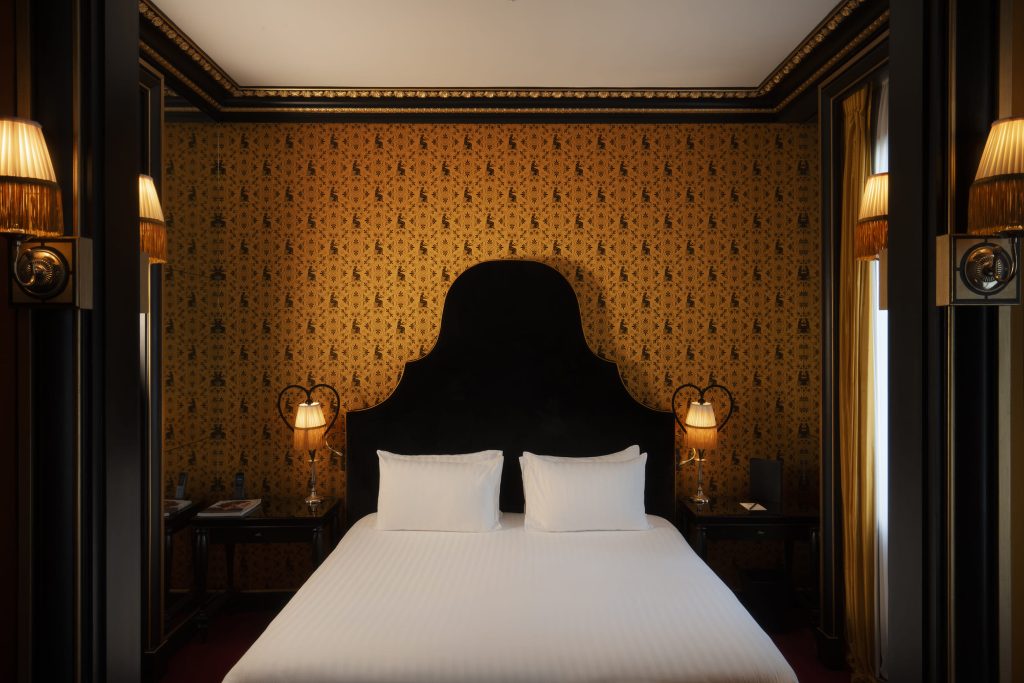
EMPIRE INSPIRATION
During the First Empire, light and fresh fabrics emerged—cottons and muslins in light tones. In the apartments, mahogany reigned supreme, while under black woodwork edged in gold, motifs inspired by antiquity and gilded colonnades elevated the severity of the décor. You’ll find this inspiration in the La Païva I and II suites.
La PAIVA I
Empire Inspiration
Three names, three marriages, and multiple lovers. La Païva was ready to do anything to achieve her goal: to become one of the most influential and richest women of the Second Empire. She will succeed beyond all her expectations.
Born in a Jewish ghetto in Moscow in 1819, Esther Lachmann quickly escaped her first marriage to a French tailor exiled to Paris, where she sold her charms to survive. Now calling herself Thérèse, she was intelligent, cultured, daring, calculating, and possessed the rounded beauty typical of the time: passionately in love with this elegant woman who dressed in the upscale neighborhoods like the women of the “high society,” pianist Henri Herz contributed to her meteoric social ascent by introducing her to the artistic circles of the time: she met Liszt, Wagner, Théophile Gautier… But the beautiful woman ruined her lover and was expelled from her family. Regardless, the ambitious woman who aimed even higher knew well that Paris was full of great names and great fortunes…
LA PAIVA II
Empire Inspiration

